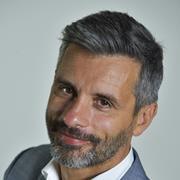IPE Conference: Pension Funds Find Changing Public Opinion Is Part Of A PE Investors Role

Negative public perceptions of certain types of alternative investment – private equity in particular – present a challenge for pension funds, as the sector increases its exposure to such assets mainly due to low bond yields, a panel discussion at the IPE Conference in Copenhagen concluded.
Chairing a session on alternatives this week, Ian Prideaux, chief investment officer at the family-owned Grosvenor Estate, asked three European pension funds whether investing in alternatives brought them any public relations (PR) problems, noting that a German member of parliament had once described PE funds as being like locusts.
Christian Böhm, chief executive officer of Austrian pension fund APK, said: “For us as a pension fund it’s just another asset class, but from the public perception it’s different.”
In certain regions of the German-speaking world, PE funds were also seen as enemies, he said.
“But in these years I have to say it’s one of our duties to try to change this public opinion, and to tell our customers that if you would like to finance growth across Europe, you have to do much more with private equity than is happening now.
“The UK is different, but in continental Europe there is a big lack of private equity, so it’s necessary that we all do more of this and develop a private equity culture,” said Böhm.
Peter Tind Larsen, head of alternative investments at Danish pension fund PFA, said that when it came to infrastructure investments in particular, it was possible to take advantage of a public relations angle.
“If you can make return requirements add up, then you can find some pure-play ESG healthy assets that you can spend some positive PR on,” he said.
But there was also a flip side to this, Tind Larsen said.
“One of the challenges on my side was active ownership, because at least when you go direct you are exposed if things go sour,” he said.
“You might have representation on the board in direct ownership, so with good reason you are held responsible if something goes wrong,” he said.
Meanwhile panellist Alberto Gómez-Reino, head of institutional asset allocation at Spain’s BBVA Asset Management, speaking in his capacity as a manager of the corporate pension fund EDP España Pension, acknowledged that a lack of public information was a problem with private equity as an asset class.
“We essentially consider private equity as a way to help companies, so this is something generally good,” he said.
But when a pension fund invested in companies – whether via public or private equity – he said it was exposed to many different risks.
“The way your clients understand this risk is crucial so for us, so there is a teaching process before introducing these assets, about why they are different from traditional asset classes.
“We are very transparent with this kind of investment. But if you buy a public equity there is also a risk, there’s always a risk,” said Gómez-Reino.
EU Negotiators Agree On Sustainability Taxonomy, Approval Still Needed
Efama calls for action on corporate reporting given investor disclosure requirements Read more
Large Dutch Metal Schemes Keep Premium, Accrual Unchanged In 2020
PMT and PME announce significant contribution rise for 2021 Read more
AP1 Hit By New Rules Breach As Head Of Equities Agrees To Quit
Swedish national pension fund says Olof Jonasson bought into firms AP1 later invested in Read more
IPE Conference: Long-term Horizon Hailed As Key To Improved Investment Approach
‘The biggest risk is that you will not achieve any returns in the coming decades,’ says Jaap van Dam, 300 Club Read more
UK Roundup: TPR Debt Recovery Rate Low, £40m Missed
KPMG sells UK pensions practice Read more
Dutch Pension Fund Body Sets Out Stall On CMU Agenda
Wishlist includes improvements regarding withholding tax, insolvency regimes and non-financial corporate reporting Read more

